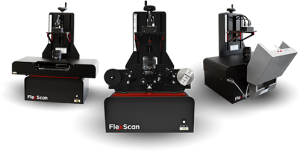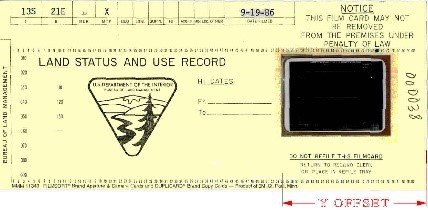With Inception Tech’s Aperture Card Scanning Services, you’ll seamlessly transition from an outdated format to accessible digital assets. Unlock instant retrieval, effortless sharing, and superior preservation of critical engineering, architectural and manufacturing data. With our specialized equipment and meticulous approach, you can trust Inception Tech to convert your aperture cards into accurate, high-quality digital representations.
Aperture Cards have been a trusted media to store records over the past 100 years. Organizations have stored documents on both 16 mm and 35 mm Aperture Cards. This was great for the customer 20 or more years ago but if you have recently been tasked with finding documents on Aperture Cards, you know the challenges you faced trying to find the specific documents. Finding the card itself can be time consuming and once you find the card, you need a Aperture Card reader to help you read the card.
Inception has converted millions of pages from Aperture Cards into digital documents such as PDF’s. Organizations of all sizes trust Inception to get the job done in a timely and accurate manner.

Converting your Aperture Cards to digital files has similar benefits to converting your paper records to digital files.
Aperture Cards like any physical media has a shelf life and must be stored in the proper conditions. Even in the most ideal storage environment, Aperture Cards can deteriorate. If your Aperture Cards have any of the following conditions, you should strongly consider converting the cards soon.
These are all signs of serious deterioration and should be addressed before it is impossible to use the film.
Becoming a highly efficient and accurate document experts like Inception Technologies takes time and can consume an organization’s resources. Inception eliminates the need to hire temps, invest in technology, and no need to train your staff.

Inception Technologies uses the latest Aperture Card scanning technology available today. Our investment in technology enables us to deliver fast and accurate data and images from your Aperture Cards.
Our team can pick up your Aperture Cards or you can securely ship the rolls to our office. Once received our team will perform an inventory of the container to verify what we received. Each container will be entered into our Production Control system which then assigns a unique id to each the container throughout the process. From there, the digitization process begins.
There are a few variations of aperture cards that you could have. Most aperture cards were used for large format documents such as maps, plans, books, blueprints, or engineering drawings and contained one large image in the aperture. However, there are some that were created using standard sized documents and contained multiple images.
This is the most common type of aperture card. The image is a large format image created from 35 mm microfilm and inserted in the aperture hole in the card. Typically, these are project oriented and key information is typed or written across the top of the card.

While not as popular as 35 mm Aperture cards, 16 mm aperture cards were sometimes used to store documents. These cards typically contained multiple frames or documents that were associated with a policy number, project or person.

Both 16 mm and 35 mm aperture cards may contain Hollerith codes. These codes are a way of indexing the cards and providing meta data about the documents. Aperture cards scanners have the ability to read these codes to help with identifying and naming your digital files. The information in the codes is typically typed or written on the card itself as well.
